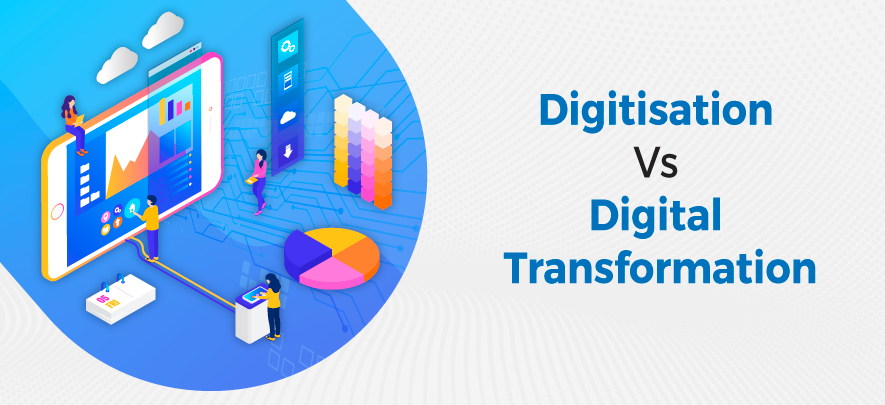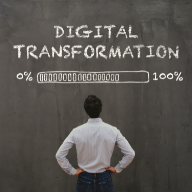Difference between Digitisation & Digital Transformation

Digital & Technology
335 week ago — 4 min read
Summary: Digitisation and Digital Transformation are terms that are often used synonymously, when in fact there is a distinct difference between the two. Sandeep Raut explains the difference as well as the relevance of these concepts in your business journey.
I have seen many businesses saying they have embarked on digital transformation while in reality, they have just digitised some of their processes.
There is confusion over the two terms, ‘digitisation’ and ‘digital transformation’. The two terms are often used interchangeably when their actual meanings are totally different. In fact, they point to two very different ways of responding to disruptive technology.
Digitisation: Doing the same things, differently
To digitise is to convert analog data into digital form. If you scan physical papers into electronic files, convert typewritten text into a digital form, switch from cassette tapes to MP3 files, or transition from old style camera film to digital photos, then you have digitised your data. It also means automation of manual processes like filling any application form by hand, to entering data directly on digital media like iPad or web portal.
We now browse the internet for information, take pictures with our smartphones, and send emails from our laptops. This is digitisation. Digitisation has made communication faster and easier and opened up new channels for real-time information. In the industrial sectors, digitisation has involved the application of new technologies to existing business models to make them operate better.
Digitisation is doing what you have always done, but using technology to make it more efficient. The business model does not change, but operational efficiency is improved.
Digital Transformation: Transforming business activity with technology
Embracing digital transformation is a totally different exercise from digitisation. Digital transformation is the process of changing existing business models with new digital technologies like APIs, Analytics, Mobility etc.
It goes deeper, creating new strategies and processes which lead to a new and better way of providing value for your customers, making things faster, easier, and smoother. E.g. moving from snail mail to real-time social media or chatbot.
Businesses can use digital transformation to expand into new markets, offer new products, and appeal to new customers. It is the process of moving to a digital business.
Digital transformation also means using the data collected from digitisation for actionable insights and then changing the way we do business.
Digital transformation is not a one-time action, but a continuous process. It brings in new business models, changes the way business is carried out and goes a long way in satisfying end customers, which is the very purpose of being in business.
To explore business opportunities, link with me by clicking on the 'Invite' button on my eBiz Card.
Disclaimer: The views and opinions expressed in this article are those of the author and do not necessarily reflect the views, official policy or position of GlobalLinker.
Posted by
Sandeep RautWe deliver Consulting Services on Digital Transformation, Digital Maturity Assessment, Digital Roadmap, Customer Journey Mapping, Digital Marketing .
View Sandeep 's profile
Other articles written by Sandeep Raut
Caring is the new Digital Marketing
188 week ago
How digital is helping businesses with geofencing?
276 week ago
Most read this week













Comments
Share this content
Please login or Register to join the discussion